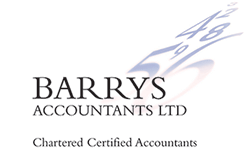HMRC launches remittance basis toolkit
A new toolkit aimed at assisting non-domiciled taxpayers that use the remittance basis has been launched. What does this do?

The remittance basis is available to those that are not domiciled in the UK. Where a claim is made (or the remittance basis applies automatically), non-domicile individuals may only be taxed on non-UK income and capital gains to the extent that it is remitted to the UK. The concept of a “remittance” is wide, and as such there are various risks and pitfalls that are often overlooked. For example, if the remittance basis is not claimed in one year, but income generated offshore in a year that the remittance basis is claimed is then remitted, the full amount will be taxable in the UK.
The new toolkit aims to help assess whether or not taxable remittances have been made. It is aimed at advisors, but is also a useful benchmark for taxpayers to refer to in terms of what documentation they will need to send to allow the advisor to check the position. The focus is on checking source documents, and areas of risk are outlined such as credit card usage. The toolkit helpfully contains links to HMRC guidance on various matters.
Related Topics
-
Capital gains tax break for job-related accommodation
You’re in the process of selling a property that you bought as your home but because of your job have never lived in. You’ve been told that you’ll have to pay tax on any gain you make, but might a special relief get you off the hook?
-
Should you revoke your 20-year-old option?
Your business has let out a building to a tenant and it is now just over 20 years since you opted to tax the property with HMRC. Should you revoke it so that your tenant no longer needs to pay VAT?
-
Chip shop owner fined £40k for hiring illegal worker
A Surrey fish and chip shop owner has been left in shock after being fined £40,000 for allegedly employing someone who didn’t have the right to work in the UK, even though he conducted a right to work check. Where did this employer go wrong and what can you learn from it?



 This website uses both its own and third-party cookies to analyze our services and navigation on our website in order to improve its contents (analytical purposes: measure visits and sources of web traffic). The legal basis is the consent of the user, except in the case of basic cookies, which are essential to navigate this website.
This website uses both its own and third-party cookies to analyze our services and navigation on our website in order to improve its contents (analytical purposes: measure visits and sources of web traffic). The legal basis is the consent of the user, except in the case of basic cookies, which are essential to navigate this website.